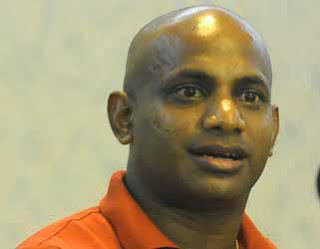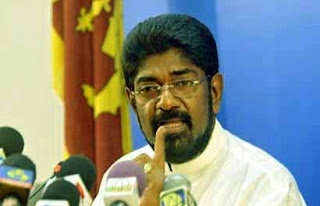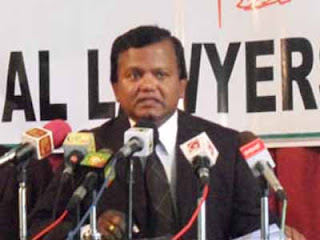Addressing the United Nations Human Rights Council (UNHRC) 22nd Sessions in Geneva Sri Lanka's Special Envoy of the President on Human Rights, Plantation Industries Minister Mahinda Samarasinghe expressed objection to any "unfair, biased, unprincipled and unjust approach" that may be adopted by the Council.
Full Speech:
It is an honour and a pleasure to address this august Council today. On behalf of my delegation, let me felicitate you upon your assumption of the Presidency and offer our support to you in the discharge of your office during your tenure. As with your distinguished predecessors, we are confident of working together in ensuring that the objectives of the Council are met.
At the conclusion of Sri Lanka’s universal periodic review (UPR) last November, I informed the Working Group that we would continue our practice of sharing with the Council our ongoing progress towards peace and normality. We are present here today to share that progress. Though faced with skepticism and even hostile criticism from some quarters, Sri Lanka has continued to engage its interlocutors in a spirit of openness, candour and constructive dialogue.
Let me now briefly address some of the highlights of our achievements.
Three and a quarter years ago Sri Lanka emerged from a long-drawn out conflict to eliminate terrorism, successfully conducting a humanitarian operation to free a captive population, with a view to bringing about lasting stability, peace and prosperity that had eluded our nation’s people for nearly three decades. In the aftermath of this operation it was established, beyond doubt that the Sri Lankan Government was doing its utmost to continue promoting and protecting human rights of all citizens. The Reconstruction, Resettlement, Rehabilitation, Reintegration, and Reconciliation programme (known as 5R), demonstrates that Sri Lanka today is well on the path to usher in an era of sustainable development, social progress and a durable peace.
Reconstruction includes restoration of physical and social infrastructure, strengthening of civil administration, provision of livelihood support and housing. As a result, a 27% growth rate has been recorded in the Northern Province the former theatre of conflict, while Sri Lanka’s overall GDP recorded around 8% growth in 2011.
The reconstruction of the Northern railway line which was totally destroyed by the LTTE is currently under way. This involves re-laying of the entire railway line stretching 110 miles (177 Km) from Vavuniya to Kankasanthurai. It is expected that this will be completed by the end of 2015 thus restoring a main artery of transport, commerce, ease of movement and communication between the previously sundered people of the north and their southern brethren.
Unparalleled progress has been made in areas such as the resettlement of internally displaced persons, facilitated by demining. By the time the LTTE was finally defeated in May 2009, over 295,000 IDPs displaced after April 2008 were in the care of the Government. A Presidential Task Force for Reconstruction and Resettlement was appointed to expedite IDP resettlement and reconstruction in parallel with the demining efforts in the North. While every effort was being made to resettle persons in their original habitat, in instances in which this is not possible, they were given alternate land.
The last batch of the IDPs was resettled in their villages in Mullaitivu on 24 September 2012. 1,186 persons from 361 families were thus resettled. With this last batch of IDPs, the Government has resettled a total of 242,449 IDPs. A further 28,398 have chosen to live with host families in various parts of the country. A batch of about 200 families living with host families has been resettled with their consent in their original habitat in Mullaithivu in September 2012. At the conclusion of resettlement, 7,264 IDPs had left the camps on various grounds and did not return while a further 1,380 sought admission to hospitals. The resettlement of the final batch of IDPs marks a day of historic significance as the resettlement is now complete and there are no more IDPs or IDP camps in the island. This makes the achievement reached within the short period of three years, remarkable when compared with similar situations in other parts of the world.
Mr President,
To address issues pertaining to land, the Government is in the process of establishing a Land Commission. The Terms of Reference of the Fourth Land Commission are being formulated. This is in accordance with the LLRC recommendation on land return and resettlement.
With the termination of military operations and the gradual restoration of normality, the strength of the military in the North has been reduced considerably. Further rationalization of this presence would be considered in line with national security interests. Members of the military have been engaged in the reconstruction work in the North, which is a normal phenomenon following the end of an armed conflict. The former High Security Zones (HSZs) have ceased to exist. The Palaly Cantonment is now the only area in which some security restrictions remain, but even within the Cantonment, civilians have unrestricted access to the Palaly airport and the Kankesanthurai harbor. The former HSZ in the Sampoor area in the Eastern Province designated in 2007 has been reduced in extent by 65% and the remainder declared a development zone under the Board of Investment law.
Mr President,
The Government is in the process of devising measures to pay compensation to the owners of properties within such areas or provide them with alternate land. I must re-emphasize that the military is in no way engaged in civil administration which is the sole responsibility of civilian officials. There are absolutely no restrictions on travel today in the North and civilians enjoy complete freedom of movement. The tens of thousands of foreign passport holders who have visited Sri Lanka and have travelled to the North is ample evidence of the freedom that exists throughout the country at present.
A significant aspect of the resettlement process is demining. The Sri Lanka Army was responsible for demining approximately 75% of the land which was the largest single area assigned to any of the parties involved in demining and included most of densely mined regions. As of January 2013, about 99% of the areas identified for demining have been cleared and less than 98 square kilometers of territory remains to be cleared. It is expected that these areas too will be completely cleared in the very near future. The total land cleared of mines from 2002 to end of December 2012 is 1,967.29 Km2. Approximately 946,719 devices have been recovered, including anti-personnel landmines and unexploded ordnance (UXOs), from 2002 to end of December 2012.
With regard to the rehabilitation and subsequent reintegration of ex-combatants, from approximately 12,000 persons at the inception, as of 15th January 2013, 396 beneficiaries (378 male and 18 female) are undergoing rehabilitation and 225 are under legal proceeding (under judicially mandated custody remanded or bailed).
As of 15th January 2013, 11,456 (9,203 male and 2,253 female) persons, including 594 former LTTE child soldiers, have been rehabilitated and reintegrated into the society. It should be noted that GOSL adhered to a policy of treating all these children as victims, not as perpetrators and all possible efforts have been taken to look into their welfare and secure their future. It must be noted that Sri Lanka has now been delisted by the UN Secretary General from Annex II of the UN Security Council Resolution 1612, on Children and Armed Conflict. This is a result of the efforts taken by the GOSL inter alia to investigate several cases on child recruitment and comply with the recommendations of the Security Council Working Group on Children and Armed Conflict and the UNSG’s Special Representative. The Working Group has adopted the ‘Draft Conclusions on the situation of children and armed conflict in Sri Lanka’ on December 19, 2012, thereby closing the dossier on Sri Lanka in the Security Council.
At no time has the rehabilitation process been used to target ex-combatants or LTTE sympathizers but has been used for their benefit and to ensure speedy their reintegration into society. Despite possessing sufficient evidence to take legal action against these individuals, the Government chose the option of rehabilitation, as a part of the reconciliation process.
Reintegration rather than prosecution and extended incarceration, has been the hallmark of our efforts. This is based on our commitment to restorative, rather than retributive, justice. Successful reintegration goes far beyond mere rehabilitation and release. Follow-up action must be taken to ensure that those reintegrated into the mainstream of community life do not tend towards recidivism. We are conscious that many of these persons have no life experience other than achieving their objectives through the force of arms.
Reconciliation is a multifaceted process. We, perhaps more than any other comparable national government, know the need for reconciliation among our people. We Sri Lankans have suffered – North and South, East and West – from an internecine conflict for nearly three decades. It ended in 2009. Now we are on the path to reconciliation.
The focus of reconciliation in the Sri Lankan context, to some, must be based principally on issues of retributive justice and accountability. This is just one aspect, but the overall dimensions of the subject are extremely complex and consultations among all stakeholders are necessary to finding lasting solutions acceptable to all. Sri Lanka needs adequate time and space to resolve such deep-rooted and wide-ranging issues. Undue pressure exerted by external parties on this one aspect is not helpful in the resolution of these issues.
This is not to state that the LLRC recommendations on accountability have been ignored. A Court of Inquiry was established by the Commander of the Sri Lanka Army to inquire into the observations made by the Lessons Learnt and Reconciliation Commission (LLRC) in its report as to alleged civilian casualties during the final phase of the Humanitarian Operation and the Channel-4 video footage irrespective of its authenticity or otherwise. The Court of Inquiry will now proceed to investigate the second part of their mandate – to examine the Channel 4 allegations.
In relation to the killings of 5 students in Trincomalee and the 17 ACF workers, the Police are conducting further investigations guided by a special team of senior prosecutors specially mandated for the purpose of examining documents and other forensic material that may be useful to conclude the investigations relating to these two cases. The GOSL’s efforts continue, through the relevant agencies, to bring finality to the crimes involved in these 2 cases. I am able to announce that in the case of the 5 students, the Attorney General has instructed the Police to commence a non-summary inquiry before judicial authorities. Thus this matter may be brought to a conclusion and is concrete evidence of our commitment to accountability.
Referring to the concern expressed on the alleged lack of Government implementation of the interim recommendations and that the National Plan of Action (NPoA) deals with only selected recommendations of the LLRC, I wish to inform this Council that some of the recommendations were already being addressed, including through the National Human Rights Action Plan. They have not been reflected in the NPoA. Further it may be noted that the NPoA is an evolving process.
All interim recommendations have been included in the NPoA. Recommendations (particularly those which are relevant to forward-looking strategies) that are neither in the NPoA nor the NHRAP, will nevertheless be implemented. For ease of processing implementation, the Government has designated them under four categories. Namely recommendations relating to :
- National policy
- The final phase of the conflict
- Human Rights and Security Issues
- Resettlement, development and humanitarian issues
The LLRC recommendations are being implemented by the corresponding implementing agencies under short, medium and long term goals, based on priority considerations within specified time frames.
A budget line of 763 million Rupees has been provided for 2013 to fund a substantial number of recommendations. This was supplemented by an additional allocation of 500 million Rupees. The allocated funds are being made available to the Ministries from end of January 2013. The bulk of the activities will be implemented therefrom, the progress of which will be measured. The latest update on implementation of the NPoA was shared with diplomatic representation in Colombo last week and we will be issuing web-published reports regularly, as and when progress review meetings are held.
As to the proposed Parliamentary Select Committee (PSC) the Government is of the view that it is the most appropriate forum on this matter since constitutional reforms need a two-third majority and a broad national consensus. While the Government has nominated its representatives to the PSC, the nominations of the opposition parties are awaited. Provincial elections are envisaged to be held within the course of this year for the Northern Province in keeping with the Provincial Councils Elections Act and relevant judicial pronouncements interpreting the provisions of the law.
Despite these gains within Sri Lanka, remnants of the terrorist organization remain very active in some countries in the Western hemisphere, where their proxies are continuing to lobby host governments, opinion makers in the media and elsewhere, to undermine the peace and reconciliation process that is ongoing. It is regrettable that some part of the international community has fallen prey to these efforts based on disinformation, outright falsehood and pressure tactics. This has at times, resulted in biased and unequal treatment of Sri Lanka.
An example of this selective and inequitable process seeking punitive action on Sri Lanka, are some efforts in this Council. We believe that Resolution No 19/2 on Sri Lanka, which was introduced and adopted at the 19th session of the Council in 22 March 2012, was entirely unnecessary, unwarranted and unfair. Moreover, as is already announced in this Council and elsewhere, a follow up draft resolution on Sri Lanka, already circulated, is to be introduced at this session – a year after the earlier Resolution.
We strongly object to any unfair, biased, unprincipled and unjust approach that may be adopted by this Council with regard to the protection and promotion of Human Rights in Sri Lanka. We are, therefore, firmly of the view that this Council should not embark upon or encourage either debate on or any country-specific resolution by virtue of a selective process which would run counter to the founding principles of the Council. Doing so will clearly reflect an application of double standards.
Mr President,
It is our position that it is the Government’s primary responsibility to resolve domestic issues. Unwarranted internationalization of such issues would only undermine the local reconciliation process in Sri Lanka; a process that is still ongoing, impacting adversely on the people in the former conflict- affected areas in their efforts to reap the dividends of peace.
Targeting Sri Lanka unfairly in this manner would only serve to further polarize the affected parties, particularly considering that there is no imminent threat to the human security of its citizens or to international peace and security. The bona-fides and the objectivity of the proponents of action on Sri Lanka may, therefore, be questioned. Moreover, the subjective selectivity in focusing on Sri Lanka in this manner, a country which has always cooperated and engaged with the United Nations System and the international community is unacceptable. Sri Lanka is of the view that country specific action in the Human Rights Council, such as the Resolution 19/2, is a selective and arbitrary process which is not governed by objective norms or criteria of any kind. It is our firm belief that it is vitally important for the structures and procedures of multilateral organizations to be uniform and consistent and devoid of discrimination.
Mr President,
In this context, the Report of the High Commissioner for Human Rights titled ‘Advice and technical assistance to the Government of Sri Lanka on promoting reconciliation and accountability in Sri Lanka (A/HRC/22/38) has been compiled pursuant to Resolution 19/2. This Report will be considered later during the session. Comments and observations of the GoSL in general on the High Commissioner’s Report were forwarded and our comments in full are placed on the website.
In relation to further engagement, it may be recalled that an invitation was extended to the UN High Commissioner for Human Rights in April 2011 for a country visit. Thereafter according to her Report, she indicated in May 2012 that the visit to Sri Lanka will be undertaken after an advance visit by a team of officials from the OHCHR to explore possible areas for cooperation, and I quote: to help prepare the ground for an eventual country visit by the High Commissioner herself; unquote. The High Commissioner expressed her satisfaction with the cooperation extended by the GoSL to the OHCHR delegation whose visit in September 2012 was facilitated in close consultation with the UN Country Office. In granting the team unfettered access, the Government acted in the good faith expectation that it would in fact prepare the ground for her visit. Subsequently the High Commissioner addressed a letter in November 2012 proposing possible areas of technical cooperation between the GoSL and the OHCHR. She also chose to introduce a new conditionality: stating that meaningful progress needs to be achieved in areas outlined for technical cooperation, before visiting Sri Lanka at some time in the first half of 2013. Thus it now appears the team’s agenda was purely to collect material for her present Report and not to “help prepare the ground” for a visit. The GoSL’s reply in December 2012 was to emphasize that, since the implementation of the NPoA and the NHRAP, are continuously evolving national processes which were being monitored, in order to arrive at a considered opinion on the progress of human rights related issues, that there is no substitute for experiencing, at first hand, the ground situation.
We reiterate that, therefore, a visit by the High Commissioner would be an ideal opportunity to view the developments objectively and holistically, imperative for the discharge of her mandate. As such, the bona fides of the High Commissioner’s objectives may be called into question, by virtue of her shifting the goalposts and seeking to impose new conditionalities.
Mr President,
We also note that an inordinate amount of attention is paid to Sri Lanka in the High Commissioner’s statements within and outside UN forums. Whether it be in the UN Security Council or successive sessions of the Human Rights Council, democracy conferences or merely comments from her on incidents or events in Sri Lanka ranging from economic migrants to the judiciary, the High Commissioner, has had, from around the end of the conflict in May 2009, a regular negative observation to make. Her frequent comments to the media, some in close proximity to sessions of the Council, could well have the effect of influencing delegations, especially when there are Resolutions contemplated. This runs counter to the detachment, objectivity and impartiality expected from the holder of such an exalted office. Sweeping generalizations using such terms as “massive violations” of human rights and the constant targeting of Sri Lanka – based on unsubstantiated evidence founded on conjecture and supposition only supports the impression of a lack of objectivity.
The Report to the Council – A/HRC/22/38 – is also very much in similar vein. Very little attention is paid to the significant progress achieved in the post-conflict phase; matters that we placed before the Working Group in considerable detail during the UPR, in particular. However, in contrast, great emphasis is placed on the perceived negatives as they pertain to the Sri Lanka’s process of reconciliation. This disproportionate emphasis on the negative to the virtual exclusion of the positive, gives the report a skewed and imbalanced character.
It would be incorrect to state that we do not engage with Special Procedure mechanisms. During the UPR, we placed on record our continuing engagement with these expert mandate holders; an engagement we value. We agree that the special procedures, while being independent, play an important complementary role to the work of the OHCHR. Sri Lanka is however concerned to note several instances where special procedures mandate holders have not adhered to the Code of Conduct, and have on occasion, exceeded their respective mandates. We therefore emphasize the importance of the need for the mandate holders to adhere to the Code of Conduct as stipulated, in executing their respective mandates,
Other concerns have been expressed in the High Commissioner’s Report to the effect that the Government has not established a mechanism to trace adults who went missing during the last stages of the war. It may be noted that the GoSL has, on numerous occasions, provided information to the UNHRC on the process adopted with regard to disappearances. An Inter–Ministerial Working Group to verify cases on alleged disappearances has been established to address cases brought to the attention by the WGEID, and report back where possible. In addition, any reported incident of disappearance to the Police is duly investigated and information on such cases was provided in the National Report of Sri Lanka to the UPR. On detention, a centralized, comprehensive database of detainees has been established at the Terrorist Investigation Division of the Police – a 24×7 mechanism with units in Colombo, Vavuniya and Boossa where the details of detainees and those who are released from detention can be obtained by the next-of-kin (NoK). It must be noted that this information is only provided to NoK due to privacy concerns. Contrary to assertions in the Report and, despite the allegation of hostile or uncooperative treatment, 3,073 NoKs have accessed the above units and sought assistance.
A related criticism has been made in the Report about the LLRC recommendations to formally designate and publicize places of detention, not being included in the NPoA. The need to strictly adhere to the existing powers under the law to arrest or detain a person has been emphasized by the Supreme Court of Sri Lanka and any breach of such provisions would attract the allegation of infringement of the Fundamental Right enshrined in Article 13 of the Constitution of Sri Lanka. Under the Prisons Ordinance as well as other written law dealing with detention of persons, no place of detention can be maintained without duly publishing it in the Government Gazette that could be accessed by any member of the public. It has always been considered illegal to maintain places of detention without properly gazetting such places and giving them publicity. In these circumstances, it would be superfluous to include this requirement in the catalogue of new measures to be adopted through the NPoA.
Article 11 of the Fundamental Rights Chapter of the Constitution provides that “no person shall be subjected to torture or to cruel inhuman or degrading treatment or punishment” and the Supreme Court has entertained a large number of petitions based on the alleged violation of this right. These have resulted in the petitioners being successful in securing orders in their favor and the victims receiving redress. The GOSL has also introduced some new measures in the last 12 months to enhance the policy framework on torture. Available statistics show that there are over 15 indictments on allegation of torture presently pending in the High Courts under the Convention Against Torture and other Cruel, Inhuman or Degrading treatment or Punishment Act No 22 of 1994. The Circular of 29th December 2011 issued by Inspector General of Police titled, ‘Safety of the persons in police custody’ should also be referred to in this connection. Awareness programmes are periodically conducted through the Police Training Institute, as well as Provincial institutes to raise the level of awareness of the investigating officers on the regulations and the manner of their implementation in the conduct of police investigations. Legal aid is available to low income segment of the society through programmes supported by the State.
In the recent past, the Sri Lanka Police and the Human Rights Commission of Sri Lanka, in conjunction with UNDP, have launched an effective awareness programme throughout the country to educate the public about their fundamental rights including the freedom from torture. As a specific measure meant for giving effect to this process, posters and billboards carrying the messages are being displayed at every police station throughout the country, in all three languages. In addition, The Asia Foundation in collaboration with the Police Training School is conducting well-structured awareness programmes on preventing torture and related issues. GoSL wishes to expand this process in due course.
A Cabinet Memorandum titled “Assistance and Protection of Victims of Crime and Witnesses Bill” was submitted by the Ministry of Justice and was taken up for policy approval at the Meeting of the Cabinet of Ministers held on 07 February 2013. It was decided to obtain the views of the Attorney General on this matter to aid in the deliberations of the Cabinet.
The Government will engage with stakeholders in connection with the implementation of the National Plan of Action for the Promotion and Protection of Human Rights (NHRAP – 2012 to 2016). The Annual Review of the NHRAP is under way with further information being collected from implementing agencies. The progress achieved will be published on the dedicated NHRAP website.
On the issue of the removal process of the former Chief Justice, due process has been followed in accordance with the Constitution of Sri Lanka. Article 107 (3) of the Constitution of Sri Lanka clearly empowers the Legislature to initiate the process to remove the Chief Justice. Following a submission of a motion signed by 117 Members of Parliament, a Parliament Select Committee (PSC) was constituted by the Speaker, consisting of Government and Opposition MPs, to examine issues connected with the allegations made against the former Chief Justice. The report of the PSC was submitted to Parliament and the matter was deliberated upon and debated for two days, one month after submission of the report. Once the resolution to remove the former Chief Justice was passed in Parliament with a two-thirds majority of 106 votes (155 members voting in favour and 49 against), the required address was made to H E the President. It was only thereafter that the former Chief Justice was removed from that office. A new Chief Justice has been appointed in accordance with the Constitution.
Mr President,
In the field of human rights we have engaged with the Council since its inception in 2006 continuing the practice of active participation in the deliberations of its predecessor – the Commission. We who come before this Council to engage, expect that the principles of universality, impartiality, objectivity and non-selectivity, constructive international dialogue and cooperation, with a view to enhancing the promotion and protection of all human rights, civil, political, economic, social and cultural rights, including the right to development; upon which this body was founded, will be upheld.
I reiterate Mr President what I said earlier: In the post-armed-conflict era, we have continued our engagement with human rights bodies – acknowledging the interest they have in the Sri Lankan situation. We have been candid in our discourse stating the gains we have made, as well as the challenges we face. We have put in place structures for discussion and implementation of solutions. However, we are being told that our chosen path is, perhaps, the wrong one. It is supposedly deficient. We must be lectured to: taught even. We must be instructed by people who know little of our history, culture and socio-political background. Mr President, from the Ashokan Rock Edicts of the 3rd Century before the Christian era, societies in our region have been guided by values underscoring good governance and human rights. We do not need to be told. We do not need to be taught. These are not culturally relativist arguments but are values deeply embedded in our social and cultural makeup. In the modern post-colonial phase, we have as independent and sovereign democracies, undertaken international obligations with regard to human rights. We have democratic constitutional processes in place. We are fully aware of what we need to do domestically and internationally. We participate in discussions with treaty bodies. We participate in the UPR process. We come before this august Body in a spirit of openness and candour and discuss issues. Sri Lanka has voluntarily provided information on the various facets the of post conflict developments to the international community, through the Universal Periodic Review and UN Human Rights Council sessions. Sri Lanka will continue to proactively and voluntarily engage with UN mechanisms including Special Procedures, Treaty Bodies, as it did in the past.
In conclusion Mr President,
Even in March 2012, when a resolution was tabled in the Council which, in effect, asked us to do what we were already in the process of doing, we continued to engage in the Council. As has been our custom since the inception, we regularly briefed the Council and had discussions with regional and cross regional groupings represented in this body on the Sri Lankan situation as it evolved. We hosted side events at which our progress was presented and discussed. We had been open and transparent about our successes and also about the challenges we faced. That resolution was in our opinion, ill-timed, unwarranted and violative of the founding principles of the Human Rights Council. We categorically rejected the resolution on a matter of principle. However, we pointed out the negative outcomes of the adoption of the resolution, but notwithstanding our rejection, reiterated our commitment to achieve lasting peace, stability and prosperity for our people. Effective reconciliation, based on home-grown solutions, is a cornerstone of that policy. We do not wish to adopt a policy of ‘destructive disengagement’ but continue with our policy of constructive and open dialogue.
We expect our actions to be assessed in their totality, in a spirit of objectivity and impartiality in this Council. Our interlocutors in this body must also take into account the considerable progress made. During the UPR process for instance, a clear majority of delegations did acknowledge and appreciate the advances we have made since 2009. This only encouraged us to do better and is what we consider constructive. However, the focus of some other intrusive initiatives that only emphasize a few areas which need further action, are less than constructive and we consider these unhelpful. These subjective measures based on unsubstantiated assertions aimed at ‘naming and shaming’, are indicative of a different agenda unrelated to the objectives of this Council. We need time and space, Mr President, to complete our work and we are confident that we will be able to deliver for our people and our country.
I thank you.
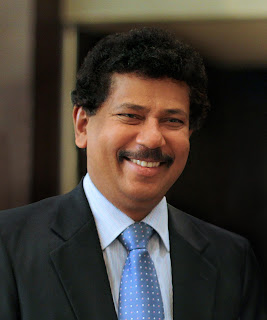
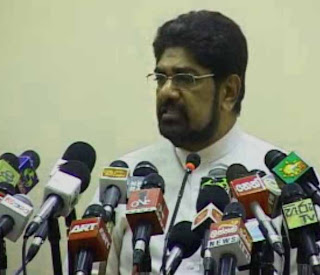
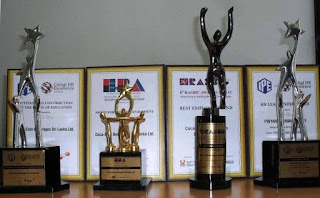
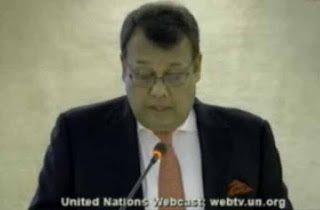
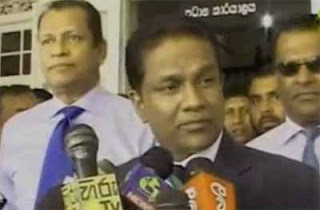
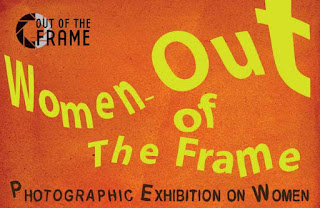


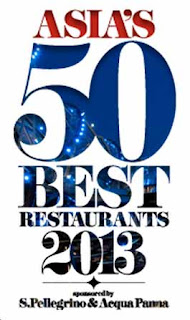
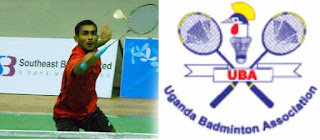
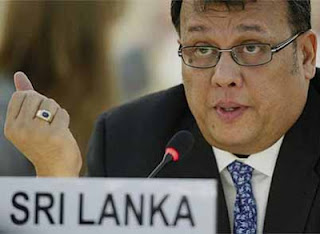
+increases+Fuel+prices.jpg)
